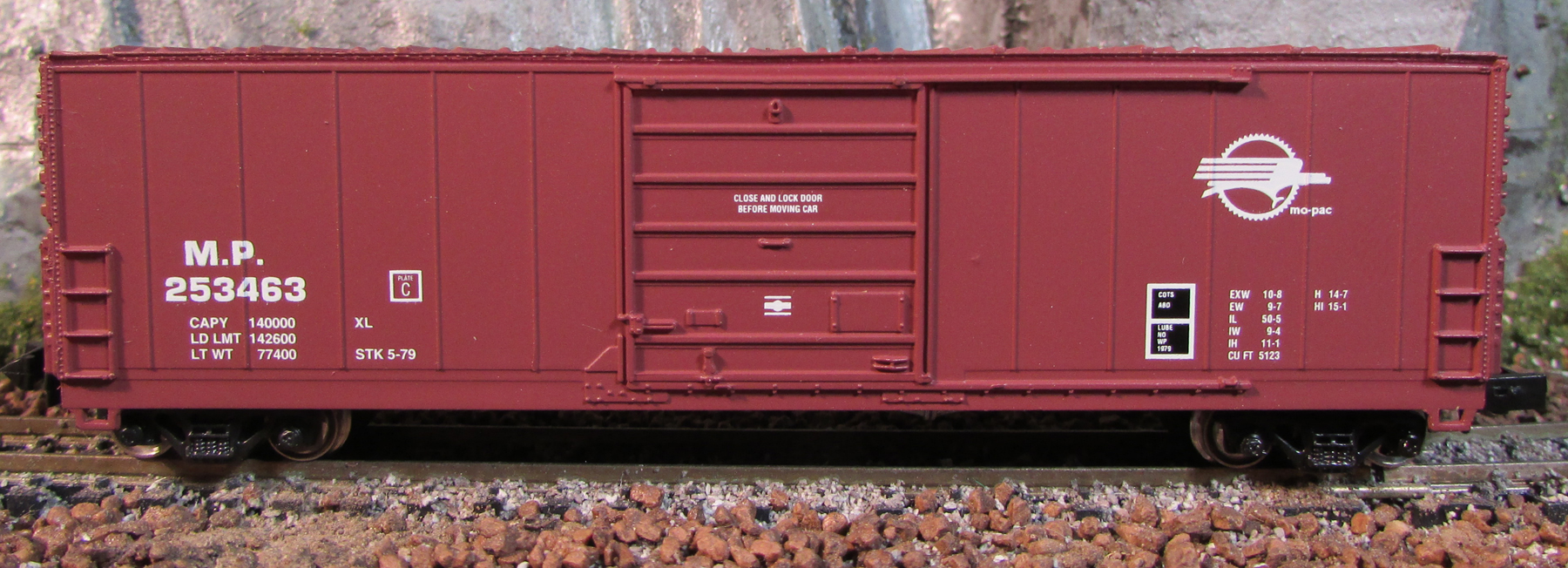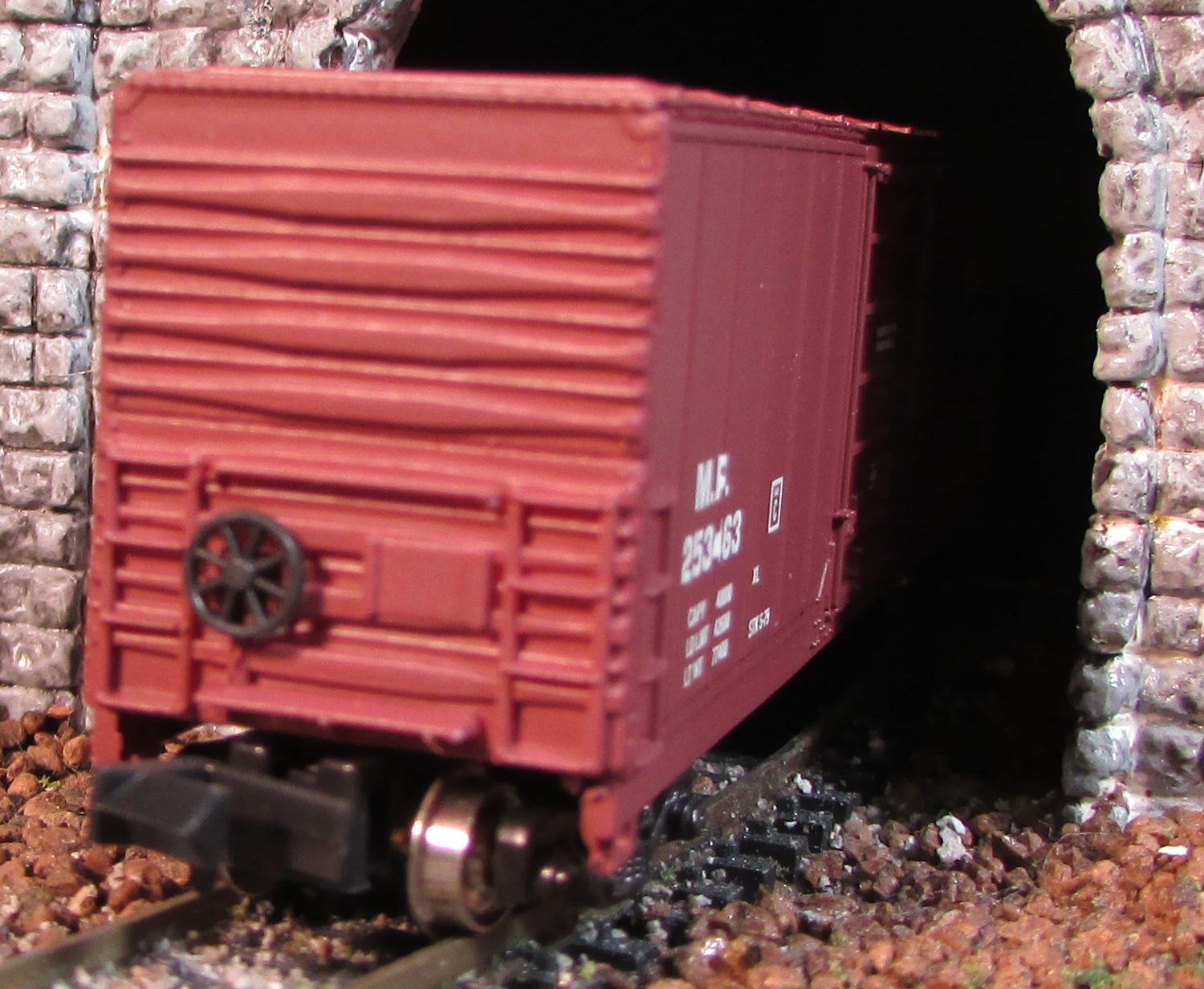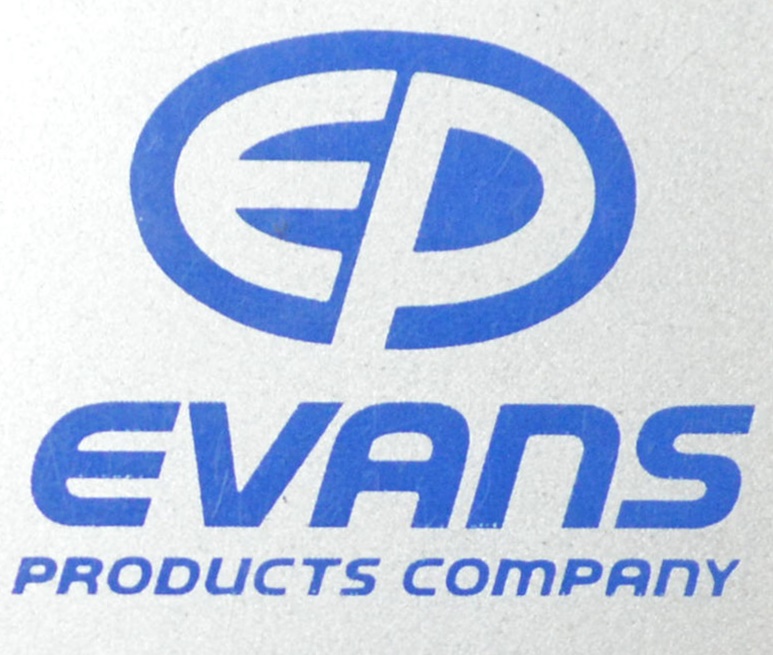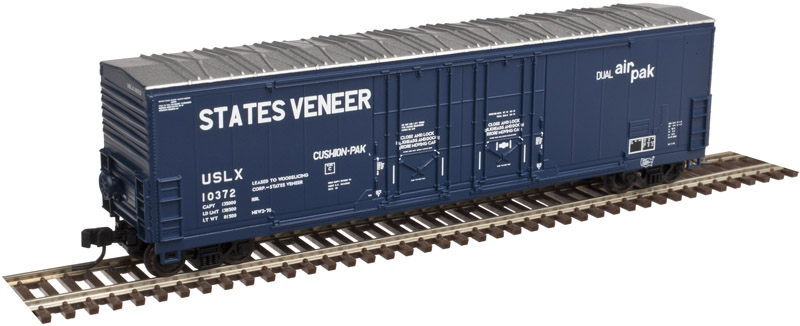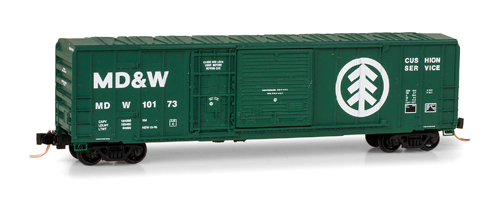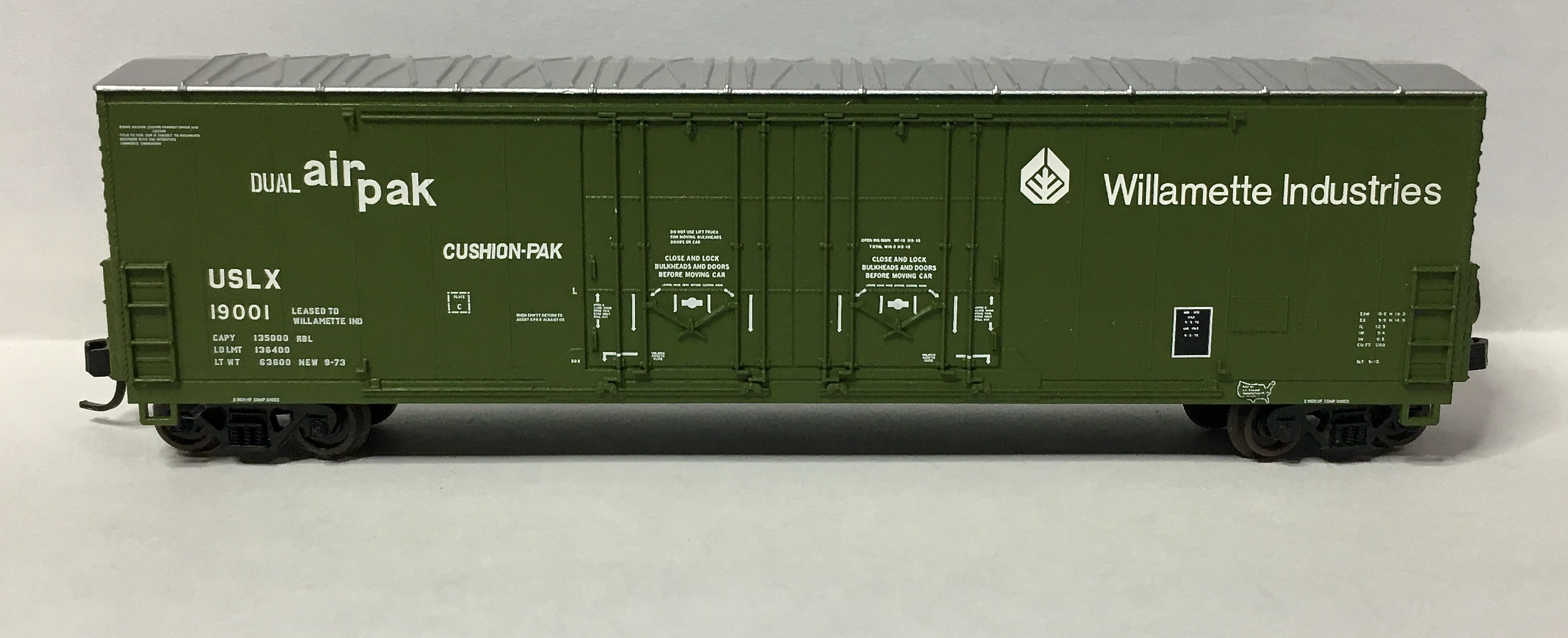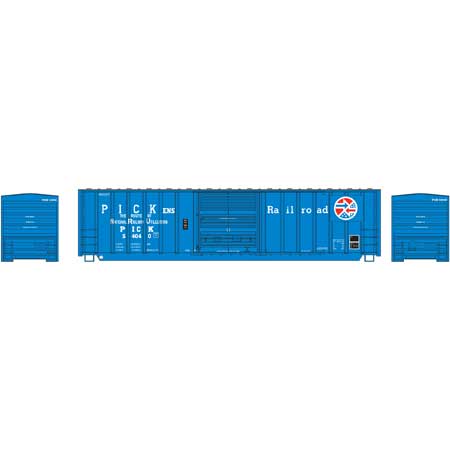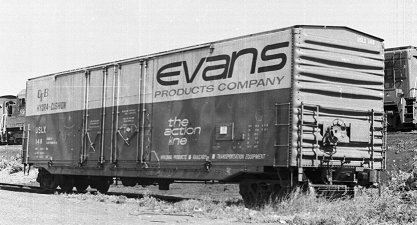Aztec - MP22025-5 - Boxcar, 50 Foot, Evans 5277 - Missouri Pacific - 253463
Click to see the details
history
| Aftermarket Decorator | Aztec |
| Stock Number | MP22025-5 |
| Brand | Aztec |
| Manufacturer | Sanda Kan |
| Body Style | Sanda Kan Boxcar 50 Foot Evans Hi-Cube |
| Prototype Vehicle | Boxcar, 50 Foot, Evans 5277 (Details) |
| Road or Company Name | Missouri Pacific (Details) |
| Reporting Marks | MP |
| Road or Reporting Number | 253463 |
| Paint Color(s) | Boxcar Red |
| Print Color(s) | White |
| Coupler Type | Rapido Hook |
| Wheel Type | Chemically Blackened Metal |
| Wheel Profile | Standard |
| Item Category | Rolling Stock (Freight) |
| Model Type | Boxcar |
| Model Subtype | 50 Foot |
| Model Variety | Evans 5277 Hi-Cube |
| Prototype Region | North America |
| Prototype Era | NA Era IV: 2nd Gen Diesel (1958 - 1978) |
| Scale | 1/160 |
Model Information:
Life-Like worked with Sanda Kan to develop this tooling as part of Life-Like's push to move all production of rolling stock to China in the 1990s. As was common at the time, the ownership of the tooling was controlled by Sanda Kan which took advantage of this to manufacture this model for Industrial Rail as well as Life-Like. It has also been sold/decorated by Con-Cor, Bev-Bel and Eastern Seaboard Models, though I do not know if any of these other companies purchased the undecorated models from Life-Like or Sanda Kan directly.
Unlike many of the other Chinese models of this period, this one does not seem to be a direct copy of any of the earlier European made N Scale models. This series of boxcars models the modern, no-roofwalk 50' Evans high-cube prototype. It has been claimed that the model specifically targets the Penn Central X72 version of the Evans car.
Unlike many of the other Chinese models of this period, this one does not seem to be a direct copy of any of the earlier European made N Scale models. This series of boxcars models the modern, no-roofwalk 50' Evans high-cube prototype. It has been claimed that the model specifically targets the Penn Central X72 version of the Evans car.
Prototype History:
With the Per Diem rules implemented by the US government to encourage railroads to purchase more boxcars, boxcar manufacturing roared into gear in the 1970s. Every major manufacturer cranked out 50 foot boxcars to satisfy the demand. Evans was no exception. Empowered by its acquisition of United States Railway Equipment (USRE), Evans-USRE boxcars became ubiquitous during the IPD boxcar boom of the 1970s. With modern upgrades such as box-corrugated, non-terminating ends, Stanray X-panel overhanging roof, and riveted car sides near the end posts, the Evans-USRE 5277 is a classic boxcar of the IPD era.
The former Evans railcar repair facility in Springfield OR is now owned/operated by Gunderson.
The former Evans railcar repair facility in Springfield OR is now owned/operated by Gunderson.
Road Name History:
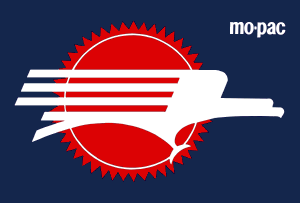 The Missouri Pacific Railroad (reporting mark MP), commonly abbreviated MoPac, with nickname of The Mop, was one of the first railroads in the United States west of the Mississippi River. MoPac was a Class I railroad growing from dozens of predecessors and mergers, including the St. Louis, Iron Mountain and Southern Railway (SLIMS), Texas and Pacific Railway (TP), Chicago and Eastern Illinois Railroad (C&EI), St. Louis, Brownsville and Mexico Railway (SLBM), Kansas, Oklahoma and Gulf Railway (KO&G), Midland Valley Railroad (MV), San Antonio, Uvalde and Gulf Railroad (SAU&G), Gulf Coast Lines (GC), International-Great Northern Railroad (IGN), New Orleans, Texas and Mexico Railway (NOTM), Missouri-Illinois Railroad (MI), as well as the small Central Branch Railway (an early predecessor of MP in Kansas and south central Nebraska), and joint ventures such as the Alton and Southern Railroad (AS).
The Missouri Pacific Railroad (reporting mark MP), commonly abbreviated MoPac, with nickname of The Mop, was one of the first railroads in the United States west of the Mississippi River. MoPac was a Class I railroad growing from dozens of predecessors and mergers, including the St. Louis, Iron Mountain and Southern Railway (SLIMS), Texas and Pacific Railway (TP), Chicago and Eastern Illinois Railroad (C&EI), St. Louis, Brownsville and Mexico Railway (SLBM), Kansas, Oklahoma and Gulf Railway (KO&G), Midland Valley Railroad (MV), San Antonio, Uvalde and Gulf Railroad (SAU&G), Gulf Coast Lines (GC), International-Great Northern Railroad (IGN), New Orleans, Texas and Mexico Railway (NOTM), Missouri-Illinois Railroad (MI), as well as the small Central Branch Railway (an early predecessor of MP in Kansas and south central Nebraska), and joint ventures such as the Alton and Southern Railroad (AS).
In 1967, the railroad operated 9,041 miles of road and 13,318 miles of track, not including DK&S, NO&LC, T&P and its subsidiaries, C&EI and Missouri-Illinois.
On January 8, 1980, the Union Pacific Railroad agreed to buy the Missouri Pacific Railroad. Lawsuits filed by competing railroads delayed approval of the merger until September 13, 1982. After the Supreme Court denied a trial to the Southern Pacific, the merger took effect on December 22, 1982. However, due to outstanding bonds of the Missouri Pacific, the merger with Union Pacific become official only on January 1, 1997.
Read more on Wikipedia.

In 1967, the railroad operated 9,041 miles of road and 13,318 miles of track, not including DK&S, NO&LC, T&P and its subsidiaries, C&EI and Missouri-Illinois.
On January 8, 1980, the Union Pacific Railroad agreed to buy the Missouri Pacific Railroad. Lawsuits filed by competing railroads delayed approval of the merger until September 13, 1982. After the Supreme Court denied a trial to the Southern Pacific, the merger took effect on December 22, 1982. However, due to outstanding bonds of the Missouri Pacific, the merger with Union Pacific become official only on January 1, 1997.
Read more on Wikipedia.
Brand/Importer Information:
Aztec Manufacturing is an aftermarket decorator originally based in San Mateo, CA, now in Carson City, NV.
Historically, Aztec was known for their excellent quality aftermarket decorations of other manufacturers' rolling stock. Aztec repainted models by many different manufacturers including Life-Like, Atlas and others.
In the recent years, Aztec's focus is on track cleaning cars DCC-Ready frames for locomotives and high quality pad-printed freight cars.
Following retirement of its owner, Aztec closed its business in 2018.
Historically, Aztec was known for their excellent quality aftermarket decorations of other manufacturers' rolling stock. Aztec repainted models by many different manufacturers including Life-Like, Atlas and others.
In the recent years, Aztec's focus is on track cleaning cars DCC-Ready frames for locomotives and high quality pad-printed freight cars.
Following retirement of its owner, Aztec closed its business in 2018.
Manufacturer Information:
 Established in 1973, Sanda Kan was originally a venture (subsidiary?) of Life-Like products. In 1979, Mr. Wai Shing Ting, formerly of Cox Hong Kong, joined Sanda Kan and took over as de facto CEO. At some point ownership of the venture changed hands and Mr. Ting became the primary owner. In 2000, Ting sold Sanda Kan to ZS Fund. The company was later resold to Kader Holdings, the venerable Hong Kong based toy manufacturer. The original location of the Sanda Kan facility was in Hong Kong, but after the liberalization of the mainland Chinese economy, the primary manufacturing site moved to Guang Dong (Canton), while the administrative offices appear to have remained in Hong Kong. At its height, Sanda Kan operated in 10 factories across Guang Dong with over 10,000 employees in 1.2 million square feet of space.
Established in 1973, Sanda Kan was originally a venture (subsidiary?) of Life-Like products. In 1979, Mr. Wai Shing Ting, formerly of Cox Hong Kong, joined Sanda Kan and took over as de facto CEO. At some point ownership of the venture changed hands and Mr. Ting became the primary owner. In 2000, Ting sold Sanda Kan to ZS Fund. The company was later resold to Kader Holdings, the venerable Hong Kong based toy manufacturer. The original location of the Sanda Kan facility was in Hong Kong, but after the liberalization of the mainland Chinese economy, the primary manufacturing site moved to Guang Dong (Canton), while the administrative offices appear to have remained in Hong Kong. At its height, Sanda Kan operated in 10 factories across Guang Dong with over 10,000 employees in 1.2 million square feet of space.
Sanda Kan is a highly recognized developer and manufacturer of precision models. It produces a full range of model train locomotives, from the very small 1:220 scale to the large 1:22 scale products. Other hobby items include electronic slot racing cars, sophisticated digital controls as well as accessories such as scenery, promotional cars and trucks. It continues to work closely with some of the world’s leading brands from concept to mold construction through to final production.
Sanda Kan’s unique structure allows for maximum flexibility. Its production facilities are located in Songgang, Shenzhen and Wanjiang, Dongguan. Each location is outfitted with mould shops providing full service on-site mould construction and maintenance. Both locations are also sub-divided into individual factories capable of manufacturing complete products, which are comprehensively equipped with injection moulding machines, tempo printing and spraying facilities, and dedicated assembly lines. This arrangement provides our clients with the dedicated capacity, service and privacy levels that they may require.
In 2008, Sanda Kan was acquired by Kader Holdings, the parent company of Bachmann and Tinco, but remains in operation producing model trains for numerous clients including: Atlas, Lionel, Aristo-Craft, Micro-Ace, S-Helper, Hornby, Brawa, Marklin and Tomix.
For more on Sanda Kan and Mr. Wai Shing Ting, please visit the Atlas Model Trains article on Wai Shing Ting.

Sanda Kan is a highly recognized developer and manufacturer of precision models. It produces a full range of model train locomotives, from the very small 1:220 scale to the large 1:22 scale products. Other hobby items include electronic slot racing cars, sophisticated digital controls as well as accessories such as scenery, promotional cars and trucks. It continues to work closely with some of the world’s leading brands from concept to mold construction through to final production.
Sanda Kan’s unique structure allows for maximum flexibility. Its production facilities are located in Songgang, Shenzhen and Wanjiang, Dongguan. Each location is outfitted with mould shops providing full service on-site mould construction and maintenance. Both locations are also sub-divided into individual factories capable of manufacturing complete products, which are comprehensively equipped with injection moulding machines, tempo printing and spraying facilities, and dedicated assembly lines. This arrangement provides our clients with the dedicated capacity, service and privacy levels that they may require.
In 2008, Sanda Kan was acquired by Kader Holdings, the parent company of Bachmann and Tinco, but remains in operation producing model trains for numerous clients including: Atlas, Lionel, Aristo-Craft, Micro-Ace, S-Helper, Hornby, Brawa, Marklin and Tomix.
For more on Sanda Kan and Mr. Wai Shing Ting, please visit the Atlas Model Trains article on Wai Shing Ting.
Item created by: gdm
on 2017-01-05 12:16:26
Last edited by: gdm on 2020-05-18 09:24:37
If you see errors or missing data in this entry, please feel free to log in and edit it. Anyone with a Gmail account can log in instantly.
Last edited by: gdm on 2020-05-18 09:24:37
If you see errors or missing data in this entry, please feel free to log in and edit it. Anyone with a Gmail account can log in instantly.


